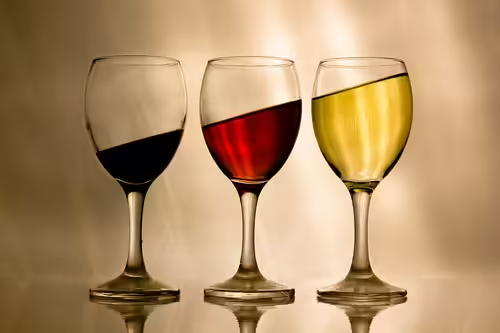Table of Contents
Drinking alcohol is known to be unhealthy. Studies reveal that alcohol can harm your liver, increase your chances of dementia, be connected to several cancers, and generally make you feel bad. Given all of these facts, it makes sense to consider your relationship with alcohol more.
As Dry January draws to an end, you might feel a desire to revert to your previous drinking patterns. However, it might be worthwhile to consider how you use alcohol and to make a commitment to change that extends past January. (And no, this does not require giving it up completely.)
People are taking these research findings seriously, as seen by the terms “mindful drinking” and “sober curious” that are appearing in the media and on social media. A person’s definition of mindful drinking may differ from another’s, but generally speaking, it involves becoming conscious of how much alcohol you consume and making the decision to drink when you genuinely want to, rather than merely while you’re watching a game or using it. as a crutch to cope with stress. While some adherents of this lifestyle continue to drink, others do not, so the term is flexible and can be tailored to your personal preferences.
Ultimately, it is up to you whether or not to consume alcohol. However, nutritionists advise those who choose to imbibe to have in mind a few points. They outline the alcohol rules you should adhere to below if you decide to drink.
Alcohol rules You must Follow :

1. According to CDC recommendations, men and women should each limit their daily alcohol intake to two drinks each.
According to registered dietitian Christine Byrne, owner of Ruby Oak Nutrition in Raleigh, North Carolina, moderate drinking is defined by the Centers for Disease Control and Prevention as no more than one drink for women and two for men per day.
She said, “I think that is a pretty good guideline.” “Those particular guidelines also clarify that it means one drink day for women, not seven drinks per week; thus, abstaining from alcohol for five days and then having six drinks on the sixth day is not the same thing.”
Because alcohol takes a long time for the body to absorb, you can’t save all of those drinks for day six, according to Byrne.
“Our bodies are able to process that amount of alcohol,” Byrne said. “Overloading [your body] with alcohol on one day and not drinking for seven days or more can be more harmful than just drinking one drink for women or two drinks for men on a single day.”
To avoid ruining the party, remember that one alcoholic beverage does not equate to a Long Island iced tea (a concoction of gin, vodka, rum, tequila, and triple sec).
Alternatively, according to the CDC, one drink is equal to five ounces of wine (12 percent alcohol by volume), 1.5 ounces of 80-proof liquor, or eight ounces of 7% ABV malt liquor.
However, be aware that drinking alcohol is bad for your health.
Author of “How to Raise an Intuitive Eater” and registered dietitian Sumner Brooks stated, “[It’s] really important to know that the World Health Organization actually came out and said that no amount of alcohol is safe.”
According to Brooks, “we know that alcohol is linked to cancer; it’s classified as a Group 1 carcinogen, which places it in the same category as tobacco.” As per Byrne, alcohol is not just a carcinogen but also a toxin, and our body gives priority to metabolize alcohol since it’s a toxin and it wants to get rid of it.
According to Brooks, the WHO guidelines indicate that even one drink for women and two for men per day are linked to these health hazards.
Therefore, “it’s just important [to know] that we’ve moved past the point of that general consensus that drinking offers health benefits” for those who do choose to drink, she continued.
It should be noted that just because the recommendations allow for a specific amount of alcohol consumption each day, it does not necessarily suggest that you should.
2. If you do consume alcohol, follow each alcoholic beverage with water.
Although it’s not a formal rule, Byrne suggested that it’s a good idea to have a glass of water after an alcoholic beverage.
She continued, “It can be beneficial because it slows you down in addition to hydrating you.” Because alcohol is a diuretic, it can cause dehydration and increase the frequency of urination.
consumption water after each drink is beneficial if you choose to consume more alcohol than what the CDC recommends is “moderate drinking,” according to Byrne.
3. Avoid drinking when you’re hungry.
It’s likely that you can recall at least one instance of drinking on an empty stomach, although hazily.
Byrne stated that it is not a good idea to drink on an empty stomach for a number of reasons.
“It is not advised to drink when you are hungry. In that way, the alcohol can take effect more quickly, which could be problematic, she noted. In particular, when you don’t have food in your stomach, your body absorbs alcohol. faster, according to the National Institute on Alcohol Abuse and Alcoholism.
It’s a wonderful thing to drink while eating since it can prevent you from becoming too wasted, according to Byrne. Additionally, since you’re not just drinking but also eating and doing other things, it can encourage you to drink less. It’s also a good thing to drink less.
Thus, if you find yourself at a happy hour with friends, don’t forget to order a couple of little snacks.
4. Don’t use alcohol as a meal substitute.
Although alcohol gives your body calories, Brooks claims that it does not give it the essential nutrients that it needs, such as fat, protein, or fiber.
It is extremely detrimental for people to correlate food quality with calories, particularly when it comes to alcohol. Because if people are only concerned with their calorie intake, they will substitute alcohol for food calories, believing that to be sufficient or a healthy substitute, according to Brooks.
“But when we’re cutting those things out to maintain calorie balance, then there’s a nutritional risk,” she added. “But really, nutrition is about getting what we need: proteins, carbohydrates, fats, vitamins and minerals, and water.” If you swap a satisfying beer for a meal, your body isn’t getting the nutrition it needs.
5. Understand the definition of binge drinking.
According to Byrne, it’s critical to understand the formal definition of binge drinking. According to the CDC, binge drinking is defined as four drinks or more for women and five drinks or more for men on a single occasion.
Byrne stated, “I believe it’s less than a lot of people think.”
Have you ever attended a wedding with dinner, dancing, a cocktail hour, and frequently an after-party? If so, you are aware of how simple it is to have four or five drinks during the festivities.
“Your behavior with alcohol is entirely personal, and just because you occasionally consume more than what’s considered binge drinking does not always indicate that you have an alcohol addiction or issue,” Byrne stated.
“I want to be clear about that as well, but that is what binge drinking is defined as in theory.”
6. Consider carefully why you are drinking.
According to Brooks, it’s critical for those who decide to drink to consider three factors:
- The amount and frequency of your alcohol consumption: To determine how much and how often you drink, follow the CDC’s guidelines.
- Ask yourself, what is it that I think this drink will do for me?” is the reason you are drinking. Brooks stated that you can achieve the same goals without drinking if you use alcohol as a way to relax, have fun, or interact with others.
- Is there anything you can consume or do differently than alcohol? According to Brooks, “we can get all of those things without drinking because there are actually so many ways that we can achieve those benefits that people think they’re getting from drinking.”
“Alcohol doesn’t really help you relax if you’re thinking, ‘Well, I just need this drink because I just need to relax,'” According to Brooks, “[What can give you that effect] can be sitting, taking a break from what you’re doing, or going to happy hour and connecting with people and getting a change of scenery.”
Without a glass of wine, you can still unwind. Instead of having a glass of wine after work, you might start coloring or take a bath with seltzer by your side. You could even go for a stroll to get a change of scenery after work.
According to Brooks, “If someone thinks that drinking at the end of the day is how they relax, then just by default they’re not thinking about other ways that they could decompress.”
In addition to considering your goals when using alcohol, it’s critical to pay attention to any warning signs.
“Ask yourself why you’re drinking if you think it might be problematic,” Byrne advised. “If it’s to numb or avoid certain feelings, that’s something to question and probably a reason to reevaluate your relationship with alcohol.”
In this situation, Byrne continued, it’s also a good idea to get in touch with a therapist who has received training in substance use treatment and can offer you support. You can locate a nearby mental health professional with the use of the Psychology Today website.
Furthermore, Brooks pointed out that changing your drinking habits is a difficult task. It’s a good idea to rely on loved ones who share your perspective if you’re trying to do this.
read also: Unexpected Benefits of Alcohol for You
Alcohol rules You must Follow : Alcohol rules You must Follow : Alcohol rules You must Follow : Alcohol rules You must Follow : Alcohol rules You must Follow : Alcohol rules You must Follow : Alcohol rules You must Follow :Alcohol rules You must Follow : Alcohol rules You must Follow : Alcohol rules You must Follow : Alcohol rules You must Follow : Alcohol rules You must Follow : Alcohol rules You must Follow : Alcohol rules You must Follow :
Alcohol rules You must Follow : Alcohol rules You must Follow : Alcohol rules You must Follow : Alcohol rules You must Follow : Alcohol rules You must Follow : Alcohol rules You must Follow : Alcohol rules You must Follow :Alcohol rules You must Follow : Alcohol rules You must Follow : Alcohol rules You must Follow : Alcohol rules You must Follow : Alcohol rules You must Follow : Alcohol rules You must Follow : Alcohol rules You must Follow :
6 Alcohol Rules You Really Should Follow, According To Nutritionists (msn.com)


1 thought on “Nutritionists says : 6 Alcohol rules You must Follow”